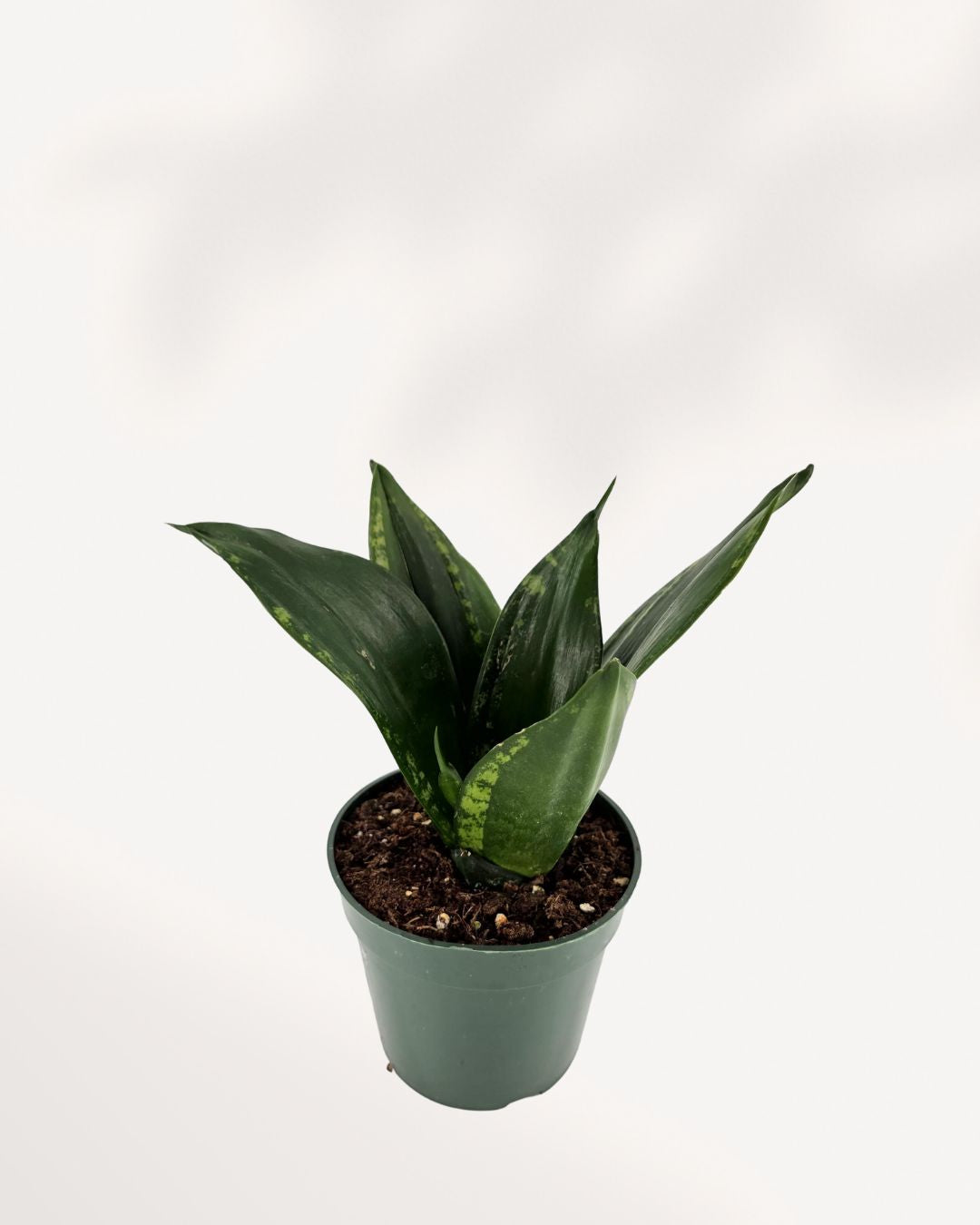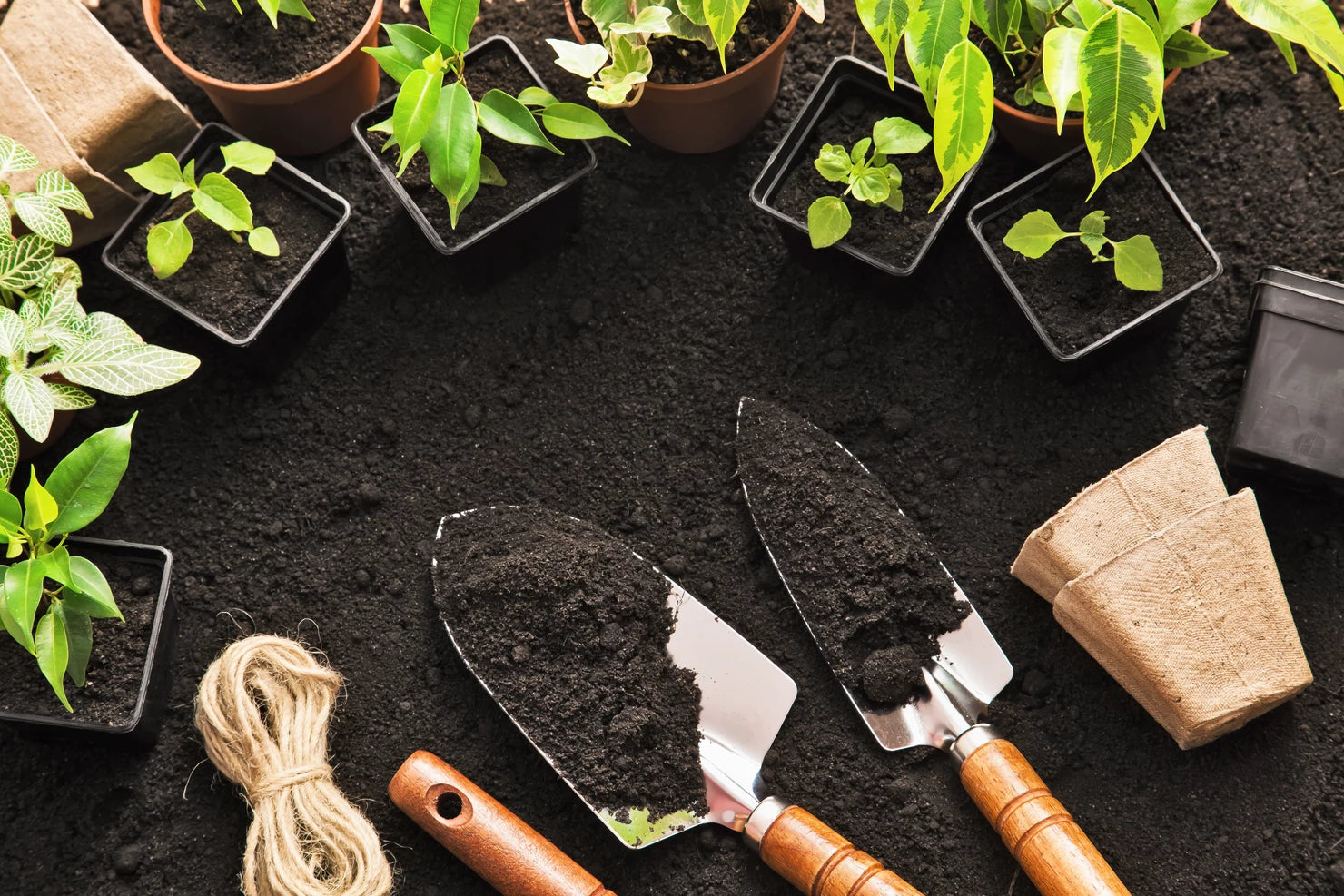Couldn't load pickup availability
Discover Sleek Sophistication with the Sansevieria 'Whitney' – Your Stylish, Low-Maintenance Ally!
Elevate your interior design with the striking elegance of the **Sansevieria 'Whitney'**. This modern marvel is a true standout in the beloved snake plant family, featuring deep green leaves with beautifully contrasting, lighter green, almost silver, margins that create a sophisticated striped effect. Its compact, upright growth habit makes it a perfect fit for any space, from bustling offices to serene bedrooms. The 'Whitney' isn't just about good looks; it's renowned for its incredible resilience, air-purifying qualities, and famously easy-care nature, making it the ideal choice for both seasoned plant enthusiasts and busy beginners alike.
Why the Sansevieria 'Whitney' is a Must-Have for Modern Living
✨ **Sleek Design & Striking Contrast**
Its dark green leaves with crisp, lighter borders create a sophisticated, almost painted effect, adding instant modern flair and visual interest to your home or office.
💨 **Breathe Cleaner Air, Naturally**
As a powerful air purifier, the 'Whitney' works tirelessly to remove toxins, contributing to a healthier and fresher indoor environment, even at night!
💚 **The Ultimate "Forget-Me-Not" Plant**
Thriving on minimal water and low light, this plant is incredibly forgiving. Perfect for busy schedules or those new to plant care – it truly thrives on neglect!
🎁 **A Thoughtful Gift for Any Lifestyle**
Its stylish looks and bulletproof nature make the Sansevieria 'Whitney' an excellent and enduring gift for anyone, regardless of their plant-care prowess.
All the Details You Need to Know
The Story Behind This Plant
The **Sansevieria 'Whitney'** is a cultivated variety of the widely popular Sansevieria trifasciata, a species native to tropical West Africa. Known for its incredible adaptability and resilience, Sansevierias have been cherished houseplants for decades. The 'Whitney' cultivar is particularly prized for its unique variegated pattern, offering a more refined and distinct appearance than some of its more common cousins. It's a testament to nature's ability to combine striking aesthetics with robust hardiness, making it a star performer in any indoor setting.
How to Keep It Happy
Caring for your Sansevieria 'Whitney' is wonderfully straightforward, making it one of the easiest plants to enjoy. Here are some simple tips:
- **Light:** Extremely adaptable! While it tolerates low light, it will thrive and show its best color in bright, indirect light. Avoid intense, direct afternoon sun.
- **Water:** This is the most crucial part – less is more! Water thoroughly only when the soil is completely dry, usually every 2-4 weeks. When in doubt, wait longer. Overwatering is its only real enemy.
- **Humidity:** It's not fussy about humidity and is perfectly happy in average household conditions.
- **Soil:** Use a well-draining potting mix, ideally one formulated for succulents or cacti. Good drainage is essential.
- **Temperature:** Keep it in average room temperatures, between 65-80°F (18-27°C). Protect it from cold drafts.
- **Feeding:** Rarely needed. You can give a very diluted liquid fertilizer once or twice during the spring/summer growing season if you wish, but it's not essential.
What to Do About Pests
Sansevierias are remarkably pest-resistant, a testament to their hardiness! However, it's always good to be aware.
If you happen to spot any of these, check out our guides for quick help:
Popular Sansevieria Varieties
The Sansevieria family is full of incredible, low-maintenance beauties. Discover more varieties that can bring unique style to your home:
- Sansevieria Boncel (Starfish) - Features compact, cylindrical leaves that splay out in a charming starfish shape, ideal for tabletops and small spaces.
- Sansevieria Black Coral - Boasts striking dark green leaves elegantly striped with silver streaks, creating a dramatic and sophisticated look.
- Sansevieria Laurentii - The classic snake plant with vibrant golden-edged leaves and strong vertical growth, perfect for brightening corners and accent spaces.
- Sansevieria Moonshine - Known for its ethereal silvery-green foliage that creates a soft, glowing effect, making it stylish and modern for contemporary décor.
- Sansevieria Cylindrica - Offers unique, upright cylindrical leaves that add architectural interest and a minimalist appeal, great for modern designs.
Ready to Add a Touch of Modern Elegance?
Embrace the sleek sophistication and effortless care of the Sansevieria 'Whitney'. Click below to order yours and let its distinctive style transform your home today!
How to take care of Sansevieria Whitney Snake Plant
Sun: Indirect
Sun: Indirect
Light: Low
Light: Low
Water: When fully dry
Water: When fully dry
Humidity: Low
Humidity: Low
Pet Friendly: Caution
Pet Friendly: Caution
Pro Tip
Pro Tip
Delivery Policy for Plant Condition
Delivery Policy for Plant Condition
"I have only received part of my order. What to do?
No worries if you've only got part of your order! Our plants come from different nurseries and might arrive in separate shipments, typically 1-2 days apart. It's all part of ensuring your green friends reach you in top-notch condition!
If you do not receive the remaining packages within 48 hours contact support at info@mygreenscape.ca
What is the Life Time Support?
Absolutely! Lifetime support means you can count on us whenever you have questions or uncertainties about your plant. Whether you're puzzled by its behavior or just want to ensure it's thriving, we're here for you. Connect with us on Instagram @mygreenscapeto or shoot us an email at support@mygreenscape.ca.
When it comes to our guarantee for plants shipped with standard or express, rest assured that we offer a 30-day happy healthy plant guarantee on all such shipments. This ensures that your plants are covered for 30 days after delivery, giving you peace of mind regarding their condition. If you have any concerns within this period, feel free to reach out to us for assistance.
For further details, please visit our Local Delivery, Store Pickup, Standard Shipping Guide Page.
What to expect
What to expect
Your plant will arrive in a standard nursery pot, typically 0.5" - 1" smaller than the stated size to seamlessly fit into your chosen decorative pot. Washable Paper Planter Bags are available for separate purchase.
Just like nature intended, each plant is unique, showcasing natural variations in size, shape, and characteristics. Our commitment is to deliver a plant that closely resembles the one featured on our website, matching your chosen size, and with the potential to thrive happily in your home.
Frequently Asked Questions
Frequently Asked Questions
Certainly! If you're pondering about ordering plants online, you're not alone. We've compiled the most frequently asked questions. Check out our FAQ section here for quick answers! Happy planting!
Plant & Pot Size Chart
Plant & Pot Size Chart
Choosing the right pot size for your plants can be a daunting task, especially if you're new to gardening. But fear not! Our pot sizes chart can help you find the perfect match for your plants, ensuring they have enough space to grow and thrive. With our guide, you'll be able to confidently choose the right pot size and plant variety for your gardening needs.
Plant Pot Size Guide.

| Extra Small | 7-10 cm | 2.5 - 3 inches |
| Small | 11-12 cm | 3.5 - 4 inches |
| Medium | 14-17 cm | 5 - 6 inches |
| Large | 19-21 cm | 8 - 10 inches |
| Extra Large | 24-27 cm | 12 - 14 inches |
All sizes are specified in product details.
Your Complete Guide to Pot Sizes: What Size Should You Choose?

When selecting a pot for your plant, it's important to find the right size. But with all the different options out there, how do you know which one is best? We're here to help!
MyGreenscape's pot sizes chart is a great resource for finding your perfect fit. Our easy-to-read chart takes out all the guesswork and helps you quickly choose the right size for your plant.
Smaller pots are best for seedlings or small plants just starting out. These tend to be shallow but wide, allowing enough room for the roots of the young plant but not too much where they get overcrowded. Medium-sized pots are ideal when your plant has grown from its infancy and is ready for more space. These are deeper and wider than small pots, so that it can accommodate larger root systems - making sure your plant gets enough nourishment while still giving it breathing room. Large pots are top choice if you have an established plant in need of lots of space - think trees and large shrubs! The spacious depth and width allow plenty of room for deep root systems without struggling for air or light.
No matter what size you choose, MyGreenscape has got you covered, with our pot sizes chart guaranteeing you find the perfect fit every time!
Winter Shipping Protection
Winter Shipping Protection
We take extra care with each package during the colder months. For destinations experiencing cold weather, we provide insulated packaging and heat packs as needed to protect your plants from freezing temperatures. With Winter Shipping Protection, your plants are equipped to arrive safe and sound, even in winter’s chill.
Care Guide
Care Guide
Explore essential care tips. check out our Comprehensive Resource for Indoor Plant Care.




WATERING MADE EASY
Check soil moisture before watering and use a potting mix that drains well. It’s the secret to healthy, happy plants!
Hear From Happy Plant Parents.
Who have brought Mygreenscape plants into their homes.


















